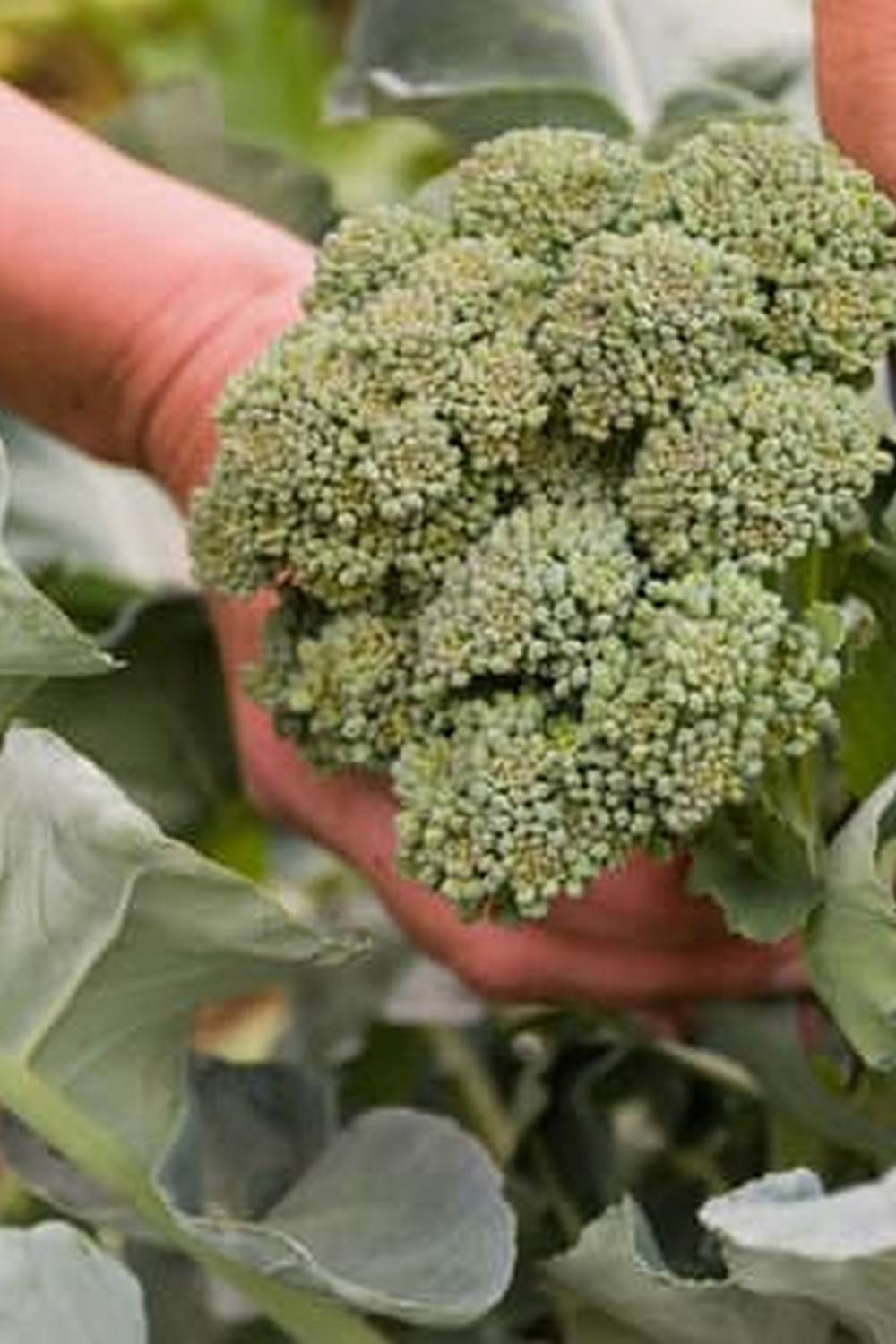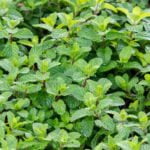Bark mulch has become a popular choice for gardeners looking to improve the health and productivity of their vegetable gardens. Using bark mulch in vegetable gardens can provide numerous benefits, including weed suppression, moisture retention, and insulation for plant roots.
In this article, we will explore the various types of bark mulch, how to properly apply it in your vegetable garden, and tips for maintenance. Whether you’re a seasoned gardener or just starting out, understanding the use of bark mulch can greatly enhance the success of your vegetable garden.
When it comes to gardening, every detail matters, including the choice of mulch. In the section that follows, we will delve into the specific benefits of using bark mulch in vegetable gardens. From improving soil fertility to promoting healthy root systems, bark mulch offers a range of advantages that can lead to bountiful harvests in your vegetable garden. We will also discuss different types of bark mulch and their applications, as well as steps for ensuring proper installation.
In addition to its benefits, we will address potential drawbacks and considerations when using bark mulch in your vegetable garden. It’s crucial to weigh both the pros and cons before making any changes to your gardening routine.
Furthermore, we will highlight case studies and success stories from gardeners who have experienced firsthand the positive impact of using bark mulch in their own vegetable gardens. Whether you are an experienced gardener or just starting out with vegetable gardening, understanding how to effectively use bark mulch can make a significant difference in your overall results.
Benefits of Using Bark Mulch in Vegetable Gardens
Using bark mulch in vegetable gardens offers a wide range of benefits for both the soil and the plants. Here are some of the key advantages of using bark mulch in your vegetable garden:
1. Weed suppression: Bark mulch acts as a natural weed barrier, reducing the need for frequent weeding and helping to keep your vegetable garden neat and tidy.
2. Moisture retention: The layer of bark mulch helps to retain moisture in the soil, reducing the frequency of watering needed for your vegetable plants. This can be especially beneficial during hot summer months or in drier climates.
3. Soil insulation: Bark mulch helps to regulate soil temperature, protecting the roots of your vegetable plants from extreme heat or cold. This insulation can promote healthier growth and better overall plant performance.
4. Nutrient retention: As bark mulch breaks down over time, it adds organic matter to the soil, improving its structure and fertility. This can result in healthier, more productive vegetable plants.
5. Erosion control: The use of bark mulch can help prevent soil erosion in your vegetable garden, particularly on sloped or uneven terrain.
By incorporating bark mulch into your vegetable gardening practices, you can enjoy these benefits while also promoting a more sustainable and eco-friendly approach to growing your own vegetables.
Types of Bark Mulch and Their Application in Vegetable Gardens
When it comes to choosing the right bark mulch for your vegetable garden, it’s important to consider the different types available and their specific applications. The most common types of bark mulch include cedar, pine, and hardwood. Cedar bark mulch is known for its insect-repelling properties, making it a great choice for vegetable gardens where pests can be a problem.
Pine bark mulch is also popular due to its ability to improve soil structure and retain moisture, which can benefit the growth of vegetables. Hardwood bark mulch is a durable option that breaks down slowly, providing long-lasting benefits to the soil.
The application of bark mulch in vegetable gardens varies depending on the type of mulch chosen. For example, cedar bark mulch can be spread around the base of plants to deter insects, while pine bark mulch can be used as a top dressing to retain moisture and suppress weeds.
Hardwood bark mulch, on the other hand, can be used as a general ground cover to improve soil health and insulation for vegetable plants. Understanding the specific qualities of each type of bark mulch will help ensure that you choose the best option for your vegetable garden.
In addition to the type of bark mulch chosen, it’s important to consider the particle size and texture when applying it in your vegetable garden. Fine-textured bark mulches are ideal for small or delicate plants, while coarser textures are better suited for larger areas or plants with more robust root systems.
By carefully selecting the right type and texture of bark mulch for your vegetable garden, you can maximize its benefits and support the healthy growth of your crops.
| Type of Bark Mulch | Application in Vegetable Gardens |
|---|---|
| Cedar | Spread around base of plants to repel insects |
| Pine | Used as top dressing to retain moisture and suppress weeds |
| Hardwood | General ground cover to improve soil health and insulation |
Steps for Properly Applying Bark Mulch in Vegetable Gardens
Benefits of Properly Applying Bark Mulch
Properly applying bark mulch in vegetable gardens can provide a multitude of benefits for your plants and soil. One of the key advantages is the ability of bark mulch to suppress weed growth. This means less time spent weeding and more time focused on cultivating a healthy vegetable garden. Additionally, bark mulch helps to retain moisture in the soil, reducing the frequency of watering and creating a more stable environment for plant growth.
Choosing the Right Type of Bark Mulch
When it comes to properly applying bark mulch in vegetable gardens, it’s important to choose the right type for your specific needs. There are various types of bark mulch available, such as cedar, pine, and fir, each with their own unique characteristics. Consider factors such as acidity levels, decomposition rates, and overall appearance when selecting the best option for your vegetable garden.
Proper Application Techniques
To ensure that you are properly applying bark mulch in your vegetable garden, it’s essential to follow specific techniques. Start by preparing the soil and removing any existing weeds. Then, evenly spread a layer of bark mulch around your vegetable plants, making sure not to pile it up against the stems. Aim for a thickness of 2-4 inches for optimal results. It’s also important to regularly check and replenish the mulch as needed throughout the growing season.
Managing Weeds and Moisture With Bark Mulch in Vegetable Gardens
Using bark mulch in vegetable gardens can offer numerous benefits, including the management of weeds and moisture. Here are some ways that bark mulch can help in this regard:
1. Weed Control: One of the primary benefits of using bark mulch in vegetable gardens is its ability to suppress weed growth. The layer of mulch acts as a barrier, preventing weed seeds from germinating and taking root in the garden soil. This can significantly reduce the amount of time and effort spent on weeding, allowing you to focus on caring for your vegetable plants.
2. Moisture Retention: Bark mulch also helps to retain moisture in the soil, which is crucial for the health and development of vegetable plants. By covering the soil with a layer of mulch, evaporation is reduced, and water is more effectively preserved within the root zone of the plants. This can be particularly beneficial during hot, dry periods when vegetables may otherwise struggle to obtain enough water.
3. Soil Protection: In addition to managing weeds and moisture, bark mulch provides a protective layer over the soil in vegetable gardens. This safeguarding effect helps to prevent erosion caused by heavy rains or strong winds, ensuring that your garden soil remains intact and fertile for growing healthy vegetables.
Incorporating bark mulch into your vegetable garden management plan can be an effective way to control weeds, retain moisture, and protect your soil while promoting healthy plant growth. By understanding how to properly apply and maintain bark mulch in your garden, you can maximize its benefits for your vegetable crops.
Protection and Insulation for Vegetable Plants With Bark Mulch
Bark mulch is not only beneficial for weed control and moisture retention in vegetable gardens but also provides insulation and protection for the plants. During extreme weather conditions, such as hot summers or freezing winters, bark mulch acts as a natural barrier that helps regulate the temperature of the soil, keeping it cooler in the summer and warmer in the winter. This is especially important for delicate vegetable plants that are susceptible to damage from temperature fluctuations.
In addition to temperature regulation, bark mulch also acts as a physical barrier between the vegetables and the ground, protecting them from splashing soil during heavy rains which can lead to soil-borne diseases. The layer of mulch also prevents direct contact between the vegetables and the soil, reducing the risk of rot and mold. Furthermore, bark mulch provides a cushioning effect that helps protect vegetables from being damaged by heavy rain or hail.
When using bark mulch for insulation and protection in vegetable gardens, it is important to choose the right type of mulch and apply it correctly to achieve maximum benefits. Organic options such as pine bark or cedar bark are popular choices due to their natural resistance to decay and ability to break down slowly, providing long-lasting insulation for vegetable plants.
Proper application involves evenly spreading a layer of mulch around the base of each plant while leaving some space around stems or trunks to prevent moisture-related issues.
| Benefit | Description |
|---|---|
| Temperature Regulation | Bark mulch helps regulate soil temperature, keeping it cooler in summer and warmer in winter. |
| Physical Barrier | It acts as a barrier against splashing soil during heavy rains, reducing the risk of soil-borne diseases. |
| Cushioning Effect | Mulch provides cushioning that protects vegetables from damage caused by heavy rain or hail. |
Potential Drawbacks and Considerations of Using Bark Mulch in Vegetable Gardens
Effects on Soil pH and Nutrients
One potential drawback of using bark mulch in vegetable gardens is its effect on soil pH and nutrient levels. As the bark mulch decomposes, it can lead to a decrease in soil pH, making it more acidic. This can be detrimental to certain vegetable plants that require a more neutral or alkaline soil environment. Additionally, the decomposition process may also tie up nitrogen in the soil, temporarily reducing the availability of this important nutrient for plant growth.
Presence of Pests and Diseases
Another consideration when using bark mulch in vegetable gardens is the potential for harboring pests and diseases. Bark mulch provides an ideal environment for pests such as slugs, snails, and certain insects to thrive. Additionally, if the bark mulch is not properly aged or treated, it may contain fungal spores or other pathogens that could infect the vegetable plants in the garden.
Impact on Soil Temperature
One concern with using bark mulch in vegetable gardens is its impact on soil temperature. While bark mulch can provide insulation and protect plants from temperature fluctuations, it may also absorb heat from the sun and cause the soil underneath to warm up more slowly in the spring. This could delay planting time for some vegetables that require warmer soil temperatures to thrive.
Considering these potential drawbacks and considerations of using bark mulch in vegetable gardens is essential when deciding whether to incorporate this mulching method into your gardening practices. By being aware of these factors, gardeners can make informed decisions about how to best utilize bark mulch for their specific vegetable garden needs.
Tips for Maintaining Bark Mulch in Vegetable Gardens
One of the key aspects of using bark mulch in vegetable gardens is the maintenance required to keep it effective. Proper maintenance ensures that the mulch continues to provide all its benefits, such as weed suppression, moisture retention, and insulation for vegetable plants. Here are some tips for maintaining bark mulch in vegetable gardens.
Firstly, it is essential to regularly check the depth of the bark mulch. Over time, the mulch may break down or get compacted, leading to a decrease in its effectiveness. It is recommended to top up the mulch layer as needed to maintain an optimal depth for maximum benefits.
In addition to monitoring the depth of the bark mulch, it is important to inspect and address any signs of mold or mildew that may develop on the surface. While bark mulch helps retain moisture, excessive moisture can lead to these issues. Raking or turning over the mulch can help prevent mold growth and ensure proper air circulation.
Furthermore, keeping an eye out for any signs of pests or insects within the bark mulch is crucial for maintaining a healthy vegetable garden. Insects or pests may take refuge in the mulch and potentially harm the vegetable plants. Regularly inspecting and addressing any pest issues will help preserve the health of the garden.
By following these maintenance tips, gardeners can ensure that their bark mulch continues to effectively benefit their vegetable gardens. Regular upkeep will help maximize the advantages of using bark mulch while minimizing any potential drawbacks such as pest infestations or mold growth.
Case Studies and Success Stories of Using Bark Mulch in Vegetable Gardens
Bark mulch is a popular choice for many gardeners, and its benefits have been demonstrated in numerous case studies and success stories. When it comes to using bark mulch in vegetable gardens, the results speak for themselves. Many gardeners have reported increased plant health, improved soil quality, and reduced maintenance after incorporating bark mulch into their vegetable garden routine.
One success story comes from a gardening enthusiast who had struggled with weed control in their large vegetable garden. After learning about the benefits of using bark mulch, they decided to give it a try. The results were astounding – not only did the bark mulch effectively suppress weeds, but it also helped retain moisture in the soil, reducing the need for frequent watering. With fewer weeds competing for nutrients and water, the vegetable plants thrived and produced an abundant harvest.
In another case study, a gardener experimented with different types of bark mulch to see how they would impact the growth of their vegetable plants. They found that fine pine bark mulch worked best for retaining moisture in the soil while also providing insulation during temperature fluctuations.
This allowed their vegetable garden to withstand hot summer days and cool nights, resulting in healthier and more resilient plants. These case studies serve as real-life examples of how using bark mulch in vegetable gardens can lead to remarkable outcomes.
Conclusion and Final Thoughts on Using Bark Mulch in Vegetable Gardens
In conclusion, using bark mulch in vegetable gardens can be a beneficial and practical choice for gardeners looking to improve the health and productivity of their plants. The benefits of using bark mulch, such as weed suppression, moisture retention, and insulation for plant roots, make it a valuable tool for maintaining a successful vegetable garden.
By choosing the right type of bark mulch and applying it properly, gardeners can create an environment that promotes healthy growth and reduces the need for constant maintenance.
It is important to consider the potential drawbacks of using bark mulch in vegetable gardens, such as the introduction of pests or the possibility of nitrogen tie-up in the soil. However, with proper maintenance and attention to these considerations, these drawbacks can be managed effectively. Additionally, incorporating bark mulch into a vegetable garden regimen has been proven successful through various case studies and success stories, highlighting its ability to enhance plant growth and overall garden health.
Overall, utilizing bark mulch in vegetable gardens can contribute to a more sustainable and productive gardening experience. With its numerous benefits and relatively simple application process, bark mulch serves as an effective tool for managing weeds, conserving moisture, protecting plants from temperature fluctuations, and promoting overall soil health. As with any gardening practice, it is essential to stay informed about best practices for using bark mulch in vegetable gardens and adjust methods accordingly based on specific garden needs.
Frequently Asked Questions
Is It OK to Use Bark Mulch in Vegetable Garden?
Using bark mulch in a vegetable garden can be okay as long as it is used properly. Bark mulch can help retain soil moisture, suppress weeds, and regulate soil temperature. However, it’s important to choose the right type of bark mulch and avoid using chemically treated or dyed varieties.
What Is the Best Mulch for Vegetable Garden?
The best mulch for a vegetable garden depends on various factors such as the climate, type of vegetables grown, and personal preferences. Organic mulches like straw, grass clippings, and compost are popular choices for vegetable gardens as they enrich the soil as they decompose. These types of mulch also provide good insulation for plant roots and help retain moisture.
Can You Put Bark Mulch Around Tomato Plants?
Yes, you can put bark mulch around tomato plants. Bark mulch can help conserve moisture and prevent weed growth, which in turn benefits the tomato plants. However, it’s important not to place the mulch too close to the stems of the plants to avoid trapping excess moisture and promoting rot.

If you’re looking to get into vegetable gardening, or are just looking for some tips on how to make your current garden better, then you’ve come to the right place! My name is Ethel and I have been gardening for years. In this blog, I’m going to share with you some of my best tips on how to create a successful vegetable garden.





